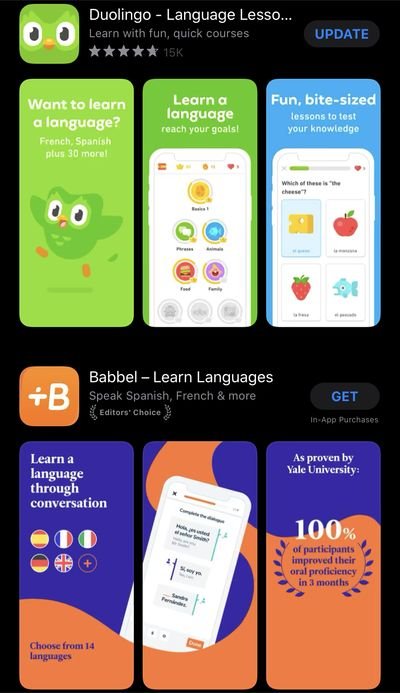If you’ve ever wanted to learn a new language, what better time than the present while we’re all cooped up inside? Perhaps you frequently visit the same destination and have always wished you speak the language, or you’re planning an extended trip post-lock-down and would like to brush up on your language skills. Here are our top tips for learning a new language during lock-down.
Be realistic
You’re not going to suddenly be bilingual after a few weeks of learning a new language. Set yourself realistic goals and expectations, such as picking up essential phrases or learning 50 commonly used words. You can then build on your language skills gradually.

Know which words to learn
It’s almost impossible to learn every single word in your chosen language. What matters is learning the words that you will get most use out of. Consider the English language, for example. There are more than one million words, but only 170,000 are in common use, and each individual typically has a vocabulary of 20,000 to 30,000 words. The top 100 words actually make up 50 per cent of English language texts. Do some research into the most commonly used words in the language you are learning.
Download an app
There are many different apps that claim to help you to learn a new language quickly and efficiently. Do your research and find the app that is best for you. We love Duolingo an d Babbel, but there are plenty of other options available.
d Babbel, but there are plenty of other options available.
Watch foreign films with subtitles
Make sure you watch plenty of films in the language you are learning. Watch in the original language with English subtitles and you’ll start to pick up commonly used words. Not only will this help you realise which words are frequently used, but it will also help your pronunciation.
Label everything in your house
Write the word for objects around your home in the language you’re learning on post-it notes and stick them onto those objects. When you reach for a glass from the cupboard, brush your teeth at night or water the plants, you’ll be confronted with the words that you are learning. Before you know it, you’ll know the words for everything in your home, increasing your vocabulary in your chosen language.
Change the language on your phone
Set your phone to the language you are learning, and you’ll instantly pick up the words and phrases you are used to seeing daily, such as ‘home’, ‘favourites’ and ‘call’. Just make sure you know how to change the language back to English!
Emma Lavelle is a UK based writer and photographer and has her own blog Field and Nest.















